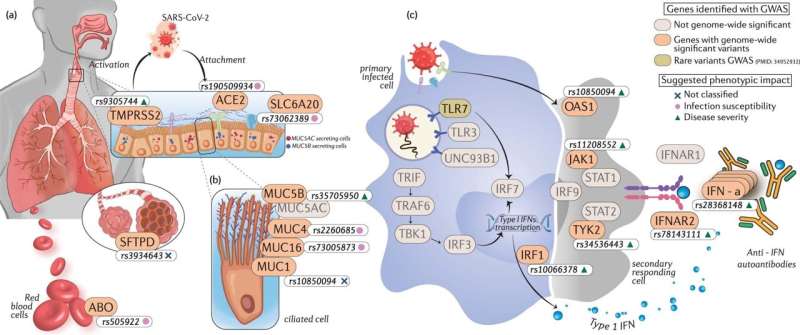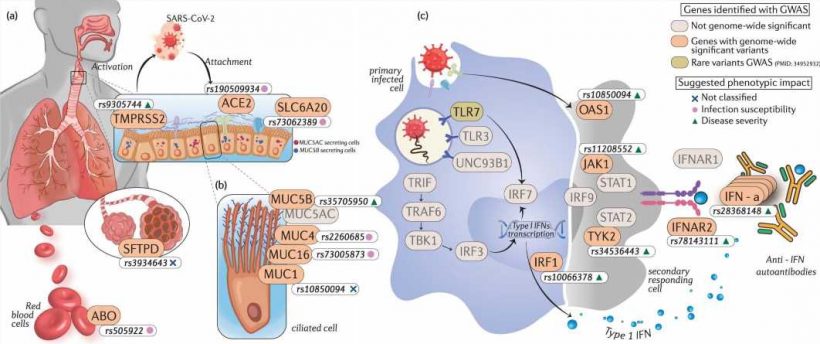
A great many criteria determine whether or not we get seriously ill from COVID-19. Besides our age and any previous or existing conditions, they also include genetic factors. Right from the start of the pandemic, the COVID-19 Host Genetics Initiative has been investigating the links between genetic factors and severe COVID-19. The international research consortium has now discovered 28 new risk factors, pushing the total number of candidate genes identified by the initiative up to 51. Its findings have now been published in the journal Nature.
“Knowing about genetic risk factors helps scientists to develop successful drugs and predict risks better,” says Dr. Kerstin Ludwig from the Institute of Human Genetics at the University Hospital Bonn, who is also a member of the University of Bonn’s ImmunoSensation2 Cluster of Excellence.
In order to identify genes of this kind, however, researchers need huge groups of patients, who are rarely all in the same place at the same time. This was why the COVID-19 Host Genetics Initiative (COVID-19 HGI) was launched as a large-scale international project at the start of the pandemic. It aims to collate data from individual studies being set up all over the world and investigate it all together. These include the Bonner Studie zur COVID-Genetik (Bonn Study of COVID Genetics, or BoSCO), which is based at the University Hospital.
The COVID-19 Host Genetics Initiative has now published its latest findings, covering 82 individual studies, in the journal Nature. The publication features contributions from a total of 3,669 authors from the four corners of the globe, including the BoSCO study team led by Kerstin Ludwig and her colleague Dr. med. Axel Schmidt, who was responsible for data analysis. The consortium is being co-led by the Broad Institute in the US and the Institute for Molecular Medicine Finland (FIMM). “The consortium has successfully identified 51 risk factors in all, 28 of which are new since the previous publication,” Schmidt reports.
The contribution by the team from Bonn consisted in recruiting volunteers for the study, working in the laboratory to generate genome-wide genetic data on affected patients plus controls as a basis for comparison, running technical and statistical analyses of this data, and sharing the results with the consortium’s data analysis team in a predefined format. “We also coordinated collaboration with the other university hospitals in Germany that were contributing in order to get even more patients involved in the BoSCO study,” Kerstin Ludwig adds.
The COVID-19 HGI published its initial results in Nature in December 2021, adding its first update in August 2022. The latest publication thus represents the second update and is expected to be the final part of the documentation. Says Kerstin Ludwig, “With 82 studies from 35 countries and over 200,000 participants in the largest subgroup, the data pool is the biggest to date.”
More information:
A second update on mapping the human genetic architecture of COVID-19, Nature (2023). DOI: 10.1038/s41586-023-06355-3
The Institute of Human Genetics is still seeking interested volunteers for the Bonn-based BoSCO study in order to gain a better understanding of genetic risk factors influencing the long-term consequences of COVID-19, i.e., “long COVID.” See www.bosco-studie.de for details.
Journal information:
Nature
Source: Read Full Article






